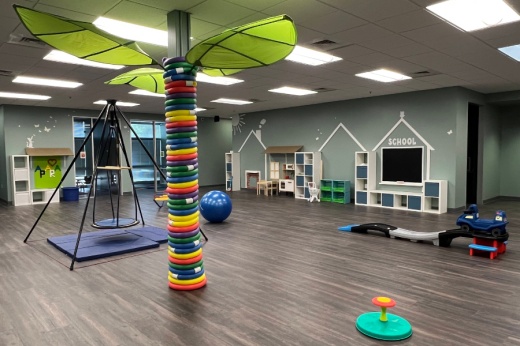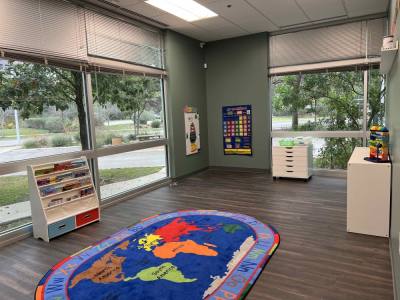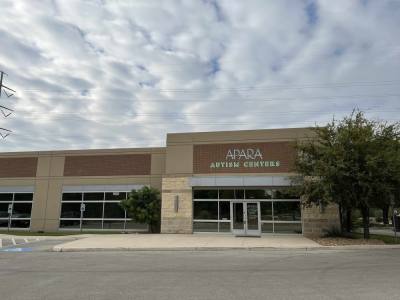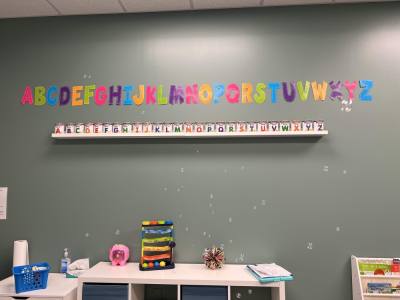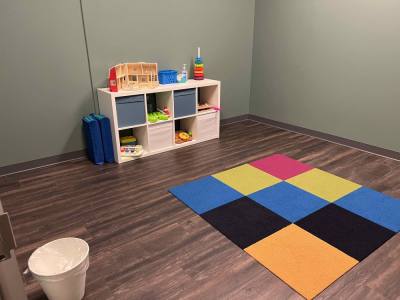When a child is diagnosed with autism the path forward can seem enormously challenging and confusing. In this Q&A, Nicole Ercan, Clinical Director of Apara Autism Center in San Antonio, discusses how Apara Autism Center was founded with the mission of being one place for everything autism to eliminate the confusion and piece-by-piece searching.
What do you want parents to know when their child is diagnosed with autism?
Ercan: We want families to know that we’re here to help. Even if it’s just someone for them to talk to if they just got their autism diagnosis. Whether they’re 18 months old or in their teens or a young adult, we have people who can talk them through the process. And if they’re not sure if ABA therapy is right for them. One of the greatest things about Apara is that we’re not just an ABA center, we’re a resource for families.
What is ABA therapy?
Ercan: ABA stands for Applied Behavior Analysis. It’s a science dedicated to the understanding and improvement of human behavior and it’s a treatment that is primarily known for use with individuals diagnosed with autism struggling with communication, social skills, or challenging behaviors. The science is based on teaching skills at an individualized level which can result in a decrease in interfering behaviors and an increase in expected behaviors such as communication, play, social interactions, and daily living skills. We refer to those as target behaviors. And we want to show a relationship between the interventions we’re putting in place and the improvements. Our biggest goal is to help a child develop skills to increase their quality of life and build connections with caregivers.
How does a program at Apara Autism Center work?
Ercan: Programs are individualized for every client that comes through our doors. Some children will be in ABA therapy for years, for others it could be a matter of months. But my number one goal when working with a family is to always talk about transitional services. What does it look like after the center? Are we looking at a school? Is there a program they’re going to enroll in? I want to help them gather that information so that they’re well informed. We even help with school meetings if necessary. We want parents to know what their rights are and what they can ask for.
What else does Apara Autism Center do to help parents?
Ercan: We focus heavily on parent training because that’s going to allow them to continue seeing progress. We want the parents to become advocates for their child. We don’t want the child to regress after they leave therapy which is what would happen if we didn’t have the parents participate. We get everyone involved.
Does Apara Autism Center collaborate with outside therapy specialists?
Ercan: If outside providers are needed we consult with them to help the family. Feeding therapy, speech and occupational therapy are examples. So I highly encourage families to collaborate and to have outside providers that can come in or that we can talk to if they’re going into their offices.
Does Apara Autism Center offer in-clinic and in-home services?
Ercan: Yes. In-clinic is a lot more structured, and we offer more social opportunities. We work to create social environments in-clinic even though our therapy is one-on-one typically with a registered behavior technician and a client. But throughout that time in our center they will have for example scheduled snack peer interaction. We provide small group circle times and classroom. Obstacle course and story time groups are also available for those children that are working to generalize skills to a variety of structured settings. At Apara we ensure there is time designated throughout the day that is focused on promoting social interactions with peers.
In-home services, are typically for children who are working towards transitioning out of the therapy setting to a less restrictive environment. Children that receive in-home may just need a little bit more help generalizing skills in the home or community setting. Families often need assistance with daily routines in the home like personal hygiene tasks, morning routines, or feeding the dog.
What else do you want parents to know about Apara Autism Center?
Ercan: When a client comes to us we work to increase skills so they can transition into a less restrictive environment and improve their quality of life. We begin talking about what that looks like for the family before services even start. We help the child and the family set obtainable goals that can be broken down and taught to increase fluency and independence. It is important that we follow the child’s motivation when working on developing goals so that they can be engage and motivate while learning. We want the children to have a say in their journey, even if they haven’t found their voice yet.
Interested in learning more about Apara Autism Center? Go to aparaautism.com to discover more about these services offered.
The above story was produced by Community Impact's Storytelling Multi-Platform Journalist Victoria Schaefer with information solely provided by the local business as part of their "sponsored content" purchase through our advertising team. Our integrity promise to our readers is to clearly identify all CI Storytelling posts so they are separate from the content decided upon, researched and written by our journalism department.
Select your community
Support Us
News
- Austin Metro
-
Houston Metro
- Houston Metro Home
- Bay Area
- Bellaire | Meyerland | West University
- Conroe | Montgomery
- Cy-Fair | Jersey Village
- Cypress
- Heights | River Oaks | Montrose
- Katy | Fulshear
- Lake Houston | Humble | Kingwood
- New Caney | Porter
- Pearland | Friendswood | Manvel
- Spring | Klein
- Sugar Land | Missouri City
- The Woodlands
- Tomball | Magnolia
- Dallas | Fort Worth Metro
- San Antonio Metro




